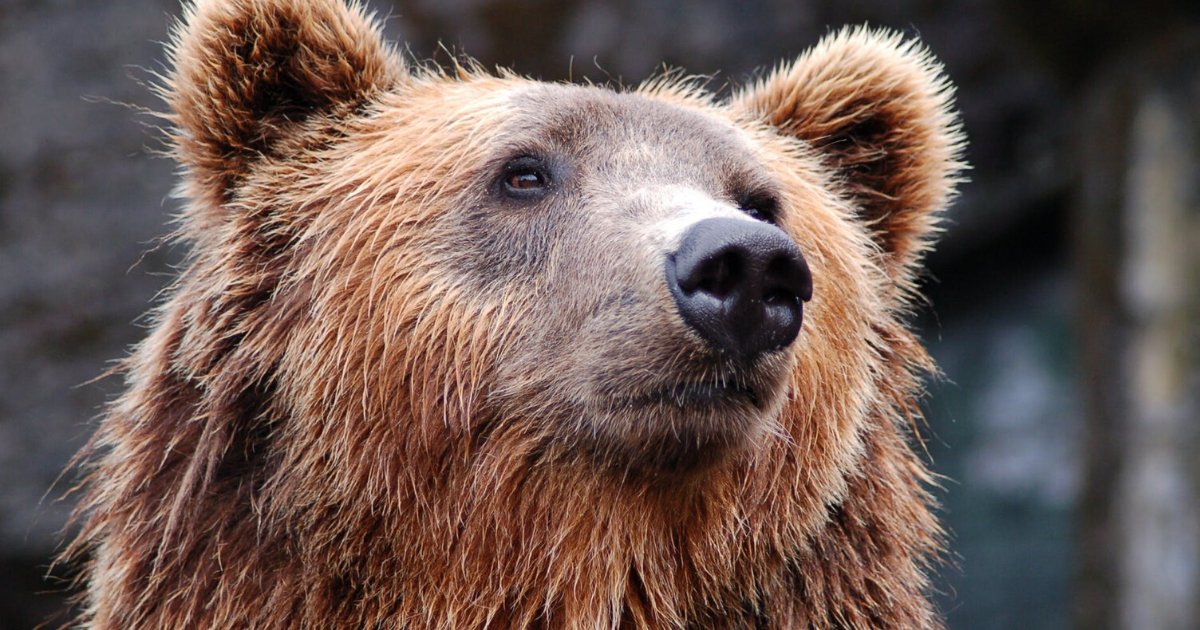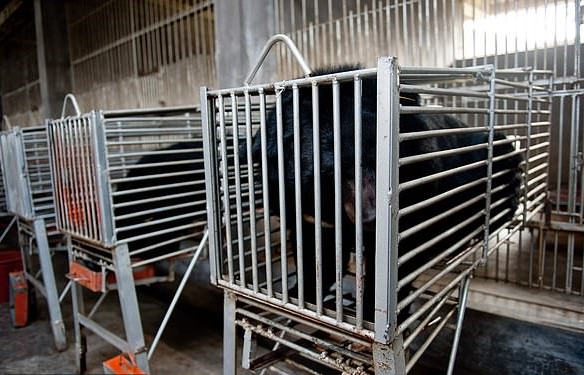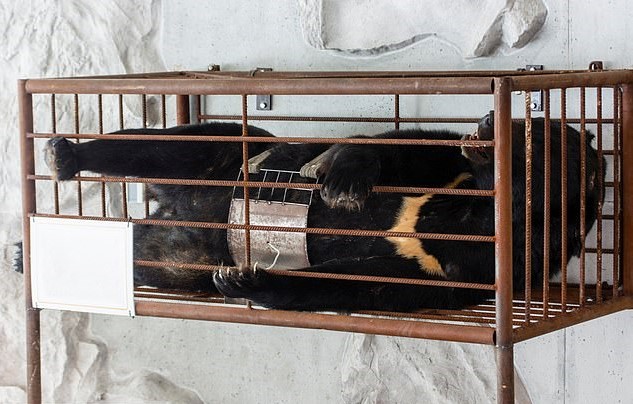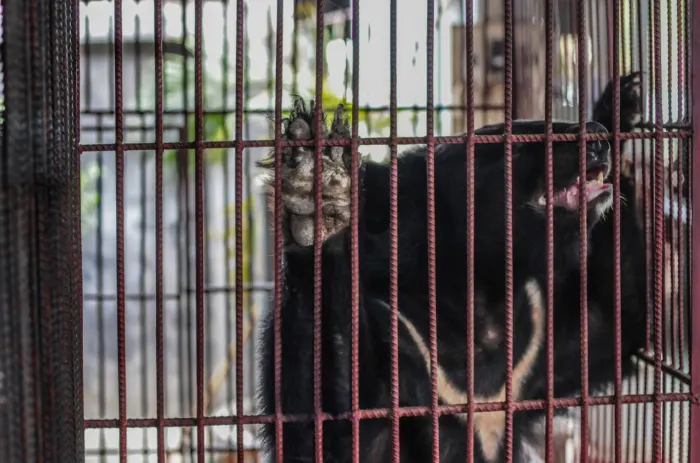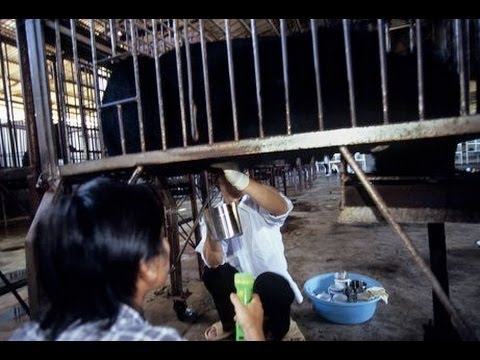China has approved treating COVID-19 patients with injections made from goat horns and bear bile, raising fears the decision could weaken efforts to prevent the illegal animal trade.
This comes only weeks after the country banned the sale of wild animals for consumption. However, the National Health Commission issued guidelines recommending the use of an injection that contains goat horn, bear bile powder, and three other medicinal herbs to treat patients with coronavirus.
The injection called ‘Tan Re Qing’ is one of the six traditional Chinese medicine products in the guidelines.
Ursodeoxycholic acid, the active ingredient in bear bile, is used for treating liver disease and dissolving gallstones but has no proven effectiveness in treating coronavirus.
According to the medicine’s producer, it can treat people with respiratory ailments, including chronic bronchitis, acute bronchitis, and pneumonia.
Activists say approving a treatment that uses an animal product is ‘both tragic and ironic’ especially when the killer coronavirus originated from trade and consumption of wild animals.
Brian Daly of the Animals Asia Foundation said: “We shouldn’t be relying on wildlife products like bear bile as the solution to combat a deadly virus that appears to have originated from wildlife.”
While the coronavirus is believed to have come from bats, many scientists think the virus might’ve spread to humans through an intermediate host mammal species.
China has been accused by conservationists of tolerating a cruel trade in wild animals not only for traditional medicine purposes but as exotic menu items as well.
“Promotion of bear bile has the propensity to increase the amount used, affecting not only captive bears, but also those in the wild, potentially compromising an already endangered species in Asia and across the world,” Daly added.
Kirsty Warren, a spokesperson for World Animal Protection, said that there are 20,000 bears being held in small cages across China as the demand for the traditional medicine goes up.
In China, bile farming is legal. However, exports of the product or medicines made from it are banned.
“Across Asia, bear bile trade is widespread, although it is illegal in most countries,” said Richard Thomas from animal rights NGO Traffic.
He also said that ursodeoxycholic acid is readily synthesized in laboratories so there is no need for bear bile.
What’s your take on this? Let us know what you think in the comments section and SHARE this post with your friends and family!
Replaced!


